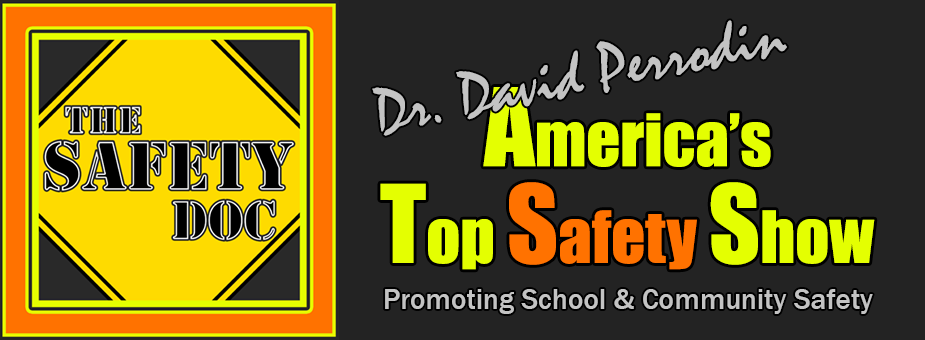True Threats – What Every Parent Must Know | SAFETY DOC PODCAST #115 [Podcast]
[Podcast] The First Amendment protects so much of what is going on (although the public after a mass attack do not like to hear that). One thing is certain – the days are over of law enforcement issuing warnings to people making threats that might be made with the intent to intimidate others.
DIRECT LINK to MP3 of this Episode: https://tinyurl.com/SDP115-AUDIO
TRUE THREATS AND STUDENTS – ACT OF TERRORISM
It is absolutely critical that schools overtly and bluntly make students aware that a threat to bring harm to their schools might result in arrest and prosecution as a Federal act of terrorism. Yes, the courts would need to consider the mental state and cognitive capacity of the student, but that’s likely done after the student has been taken into custody.
TRUE THREATS PROSECUTIONS
“There has definitely been an increase in the visibility of true-threats prosecutions,” says Jennifer Kinsley, a law professor at Northern Kentucky University who litigates First Amendment cases. She explains that many of these arise from social media posts and from the domestic arena, where divorce parties make angry statements. These individuals may claim that their spoken words are protected by the First Amendment, that their offensive expressions were merely crude political opinions, jokes or rants not meant to be taken seriously—or misguided attempts to blow off steam. But in an age beset with mass shootings and fear of terrorism, government officials likely will contend that such utterings or mutterings fall into the category of true threats—a type of unprotected speech.” (Hudson, 2018, ABA Journal).
FIRST AMENDMENT PROTECTION
The First Amendment to the United States Constitution is a part of the United States Bill of Rights that protects freedom of speech, freedom of religion, freedom of assembly, freedom of the press, and right to petition.
WHAT COUNTS AS SPEECH?
Think far beyond the spoken word or written notes. Courts have identified speech as expression in: online posts; theater and dance, art, political yard signs, handing out flyers, and clothing. At least one federal appeals court has found that liking something on Facebook qualifies as speech! Some types of computer code may be considered speech, but the limits of that is still an open question.
DEFINITION OF A TRUE THREAT.
In legal parlance a true threat is a statement that is meant to frighten or intimidate one or more specified persons into believing that they will be seriously harmed by the speaker or by someone acting at the speaker’s behest. (Yelling “fire” in a theater is not protected public expression) True threats constitute a category of speech that is not protected by the First Amendment (O’ Neill, K. F., (2017) True Threats. MTSU.Edu).
CONFUSION IN THE COURTS. The Supreme Court’s true-threat jurisprudence is less than clear. A review of lower court decisions indicates a hodgepodge of different results: (A) The Supreme Court of South Dakota recently upheld the conviction of a man for threatening a judicial officer by stating: “Well, that deserves 180 pounds of lead between the eyes,” and “Now I see why people shoot up courthouses.” State v. Draskovich (Nov. 21, 2017); (B) The Connecticut Supreme Court ruled that a man’s statement to his brother—“If you go into the attic, I will hurt you”—could be considered a true threat and denied the defendant’s motion to dismiss. State v. Pelella (Oct. 10, 2017); (C) An Illinois appeals court reversed the threat conviction of a man who left the following voicemail on a public defender’s phone: “There is not a day that goes by since I was sentenced at that courthouse that I have not dreamed about revenge and the utter hate I feel for the judge. There’s not a day that goes by that I don’t pray for the death and destruction upon the judge and upon every single person who sentenced me.” People v. Wood (Nov. 20, 2017).
FOLLOW
- PodBean MP3 https://tinyurl.com/SDP115-AUDIO
- Apple Podcasts http://tinyurl.com/SafetyDocApplePodcasts
- SUBSCRIBE to “The Safety Doc” YouTube channel https://tinyurl.com/SDP115-VIDEO
- The 405 Media http://the405media.com/the-safety-doc/
- SAFETY DOC WEBSITE & BLOG safetyphd.com
- Follow David & The Safety Doc Podcast on Twitter @SafetyPhD
- Email Dr. Perrodin thesafetydoc@gmail.com
Looking for Dr. Timothy Ludwig, PhD?
Dr. Perrodin’s “Safety Doc Podcast” negotiates school and community safety. To be informed about industrial safety, please contact Appalachian State University Professor Dr. Timothy Ludwig, PhD, at www.safety-doc.
Purchase Dr. Perrodin’s Book: Schools of Errors – Rethinking School Safety in America

